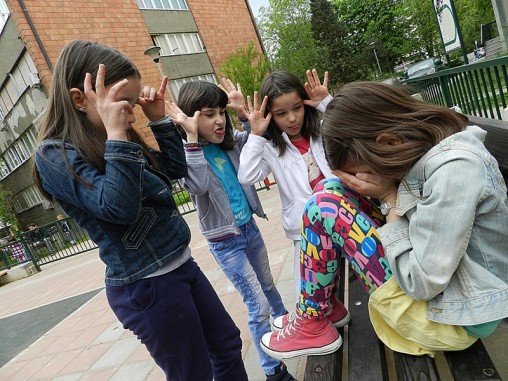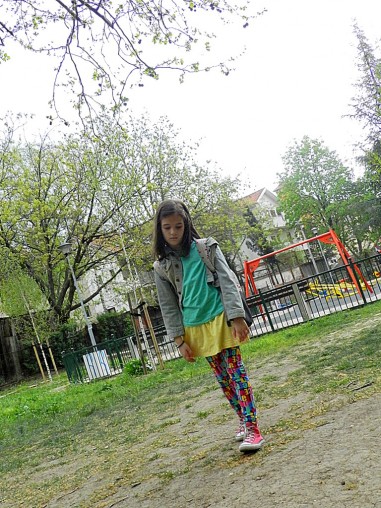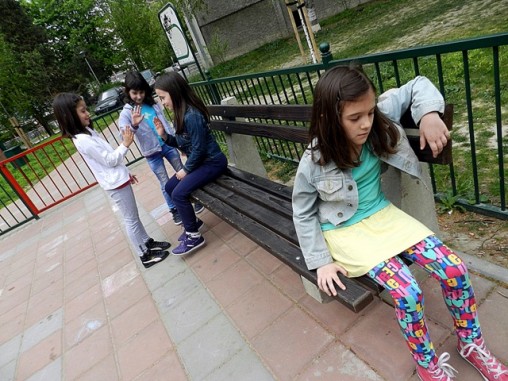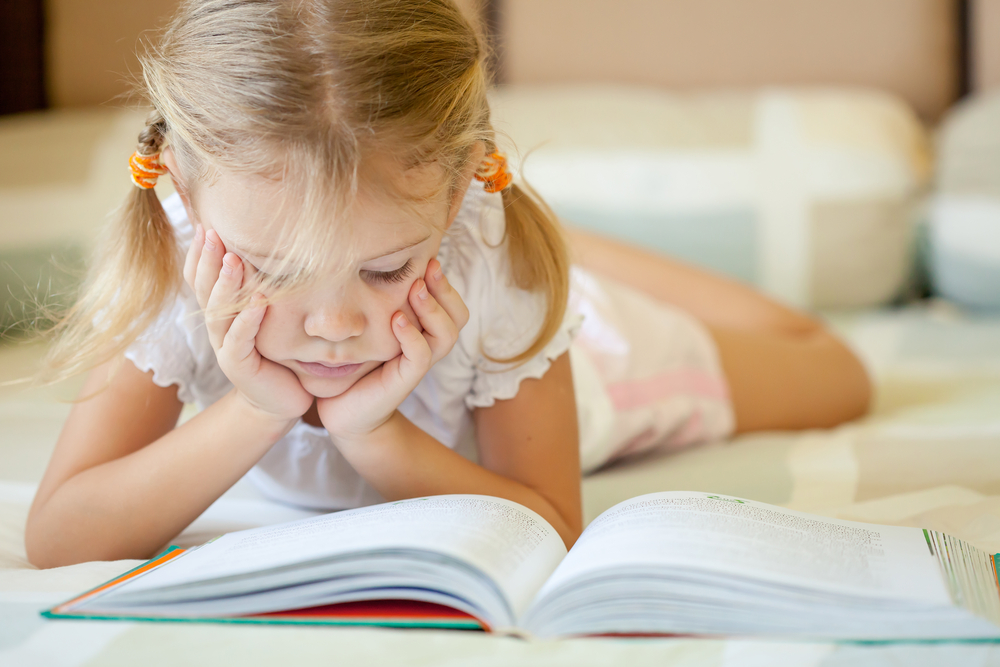I’m sure each of you remember some of the friends from school who were mocked and exposed to name-calling, just because they were somehow different.
Verbal bullying is the most common type of violence in schools. It is equally present among boys and girls. Still, in many cases, verbal bullying is the province of girls. Girls are more subtle than boys and use verbal bullying, instead of physical one, to dominate others and show their superiority and power. By definition, verbal bullying refers to when an individual uses verbal language to embarrass, mock or insult another person. Unlike physical bullying, where the effects are obvious (bruises, scratches…), verbal bullying is harder to see and stop. However, one should have in mind that words alone do have power and can harm more than punches. Furthermore, we should recognize if our child, friend or pupil is exposed to this type of violence in school and react in time.
How insulting and mocking can affect children, and what can we do to solve the problem of verbal bullying in schools?
Different interest, habits, dress style, way of talking, skin color are some of the reasons why kids may become victims of verbal bullying. It often happens that children who are excellent pupils, and who are very dedicated to school, are exposed to mockery and rejection by their peers. Sometimes children intentionally drop in school performance and start to get bad marks just to be accepted and become popular among their classmates. However, we should be aware that not all the children react in the same way when they are exposed to mocking and name-calling. Here’s the example: Two girls, both excellent students, have always been active in class and very dedicated to learning. Their classmates started to call them nerds and rolled their eyes whenever one of them wanted to answer the teacher’s question. But, one of them did not let all this destroy her self-esteem, nor did she pay any attention to what they were doing. After a while, due to the fact that she ignored everything they were saying about her, she was no longer an easy target, so they stopped mocking her. The other girl, however, reacted quite the opposite. She wanted to be accepted and appreciated by her classmates. She suffered for their mockery, so she started to leave her homework at home on purpose, and played truant in order to stop verbal bullying by her peers.

Conclusion: It would be best to stay indifferent, although sometimes it is hard to do so. Children who are insecure and who have low self-esteem due to verbal bullying may withdraw and become suspicious. It is very hard for them to let others enter their world deprived of mean things and mockery. Such children may show aversion to school and refuse to participate in activities with their peers. Words can have tremendous power, greater than we could ever imagine. Mocking or taunting can instantly crash all the ideas, wishes and aspirations of the child who has no self-confidence. Victims of verbal bullying lose faith in their capabilities. They get discouraged and may refuse to accept new challenges, fearing that they will not be able to fulfill expectations and be successful. Apart from classmates, teachers may be verbally abusive, too. In most cases the problem is caused by their statements that humiliate or discourage children.
I remember a teacher who constantly made fun of the chubby boy. The boy felt uncomfortable. However, inappropriate jokes of his teacher encouraged him to start exercising and to be physically active during summer. When the school started in September he appeared much thinner, nothing like that boy from the beginning of the previous school year. He did all that just to stop the teacher’s mockery. On the other hand, there are teachers who say some pupils have gaps in knowledge or can’t understand anything. They treat such children as not too intelligent or smart enough, seeing no point of helping them enroll a particular school. Verbally abusive teachers can destroy already shattered confidence of these pupils and make them become even more insecure. They must be aware their remarks can ruin all that a child has ever dreamed of.
 Kids who are different in some way, i.e. suffer from overweight or wear glasses, are often exposed to taunting, which causes them to feel uncomfortable in their own skin. Moreover, children with special needs frequently experience rejection and mean things by their peers. My brother attended a special group within regular kindergarten where other children accepted him and his friends well. They even took them outside and played with them. However, during one visit to a kindergarten, in which there was no group for children with special needs, the kids immediately started to point a finger at him and made inappropriate jokes. Luka was very young then, so he could not understand what was happening.
Kids who are different in some way, i.e. suffer from overweight or wear glasses, are often exposed to taunting, which causes them to feel uncomfortable in their own skin. Moreover, children with special needs frequently experience rejection and mean things by their peers. My brother attended a special group within regular kindergarten where other children accepted him and his friends well. They even took them outside and played with them. However, during one visit to a kindergarten, in which there was no group for children with special needs, the kids immediately started to point a finger at him and made inappropriate jokes. Luka was very young then, so he could not understand what was happening.
I wonder how children with developmental disorders or some other form of disability might feel, especially when they are older and aware of the situation?
From my point of view, it is very important to teach children to accept differences and demonstrate empathy toward their peers who can’t hear, see or walk. All they need is someone to understand and accept them, and be a friend they can play with. It takes just a little patience from our side. I also believe that each of us should strive to encourage children to understand others and be compassionate. Let them put themselves in somebody else’s shoes, step into the world of boys or girls being mocked or taunted by their peers, use their perspective of seeing things, and try to understand their feelings. If children are taught empathy, I’m sure verbal bullying will be much less common.

Children respond differently to verbal bullying – some of the victims who have low self-esteem tend to withdraw and become depressed. Unfortunately, sometimes the effects of this type of violence are very serious, such as self-injury or even in some cases, suicide. Parents and teachers are often not aware of the power of words and react only when physical violence takes place. Given the effects humiliating, mocking, insulting and taunting may cause, it is important to be aware of what’s going on in your child’s life, to understand their feelings and needs and recognize a problem in time. What’s more important, parents, teachers and the whole community should work together and try to prevent new cases of verbal bullying in schools.
What would you do in order to prevent and stop verbal bullying? We would like to hear your opinion regarding this issue. Share with us your experiences about this type of violence.












